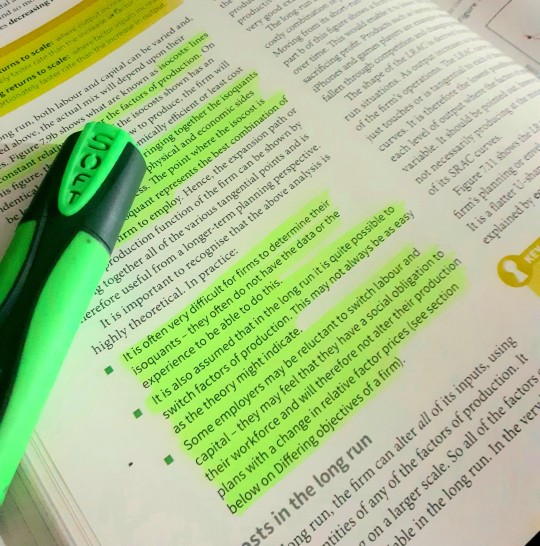#a level economics
Text
Done it again! Two A's and a B!
I'm free!!!!!!!!!
The Cambridge board can suck my ass for all the shit I went through! No resources, changing the stupid syllabus, subjective grading, extra reading which isn't really extra reading as much as it's a set of quotes to memories. You made my life a living hell.
#personal#the bisexual one#a levels#it honestly isn't too hard as it's just so much shit#a level psychology#a level english language#a level economics
3 notes
·
View notes
Text

I would rather study the dozen physics formula than deal with economics tbh. I'm getting a little sick of graphs.
#studyblr#online diary#spilled thoughts#studyspo#student life#study blog#productivity#study motivation#a levels#a level economics
1 note
·
View note
Text
Why we don’t like it when children hit us back
To all the children who have ever been told to “respect” someone that hated them.
March 21, 2023
Even those of us that are disturbed by the thought of how widespread corporal punishment still is in all ranks of society are uncomfortable at the idea of a child defending themself using violence against their oppressors and abusers. A child who hits back proves that the adults “were right all along,” that their violence was justified. Even as they would cheer an adult victim for defending themself fiercely.
Even those “child rights advocates” imagine the right child victim as one who takes it without ever stopping to love “its” owners. Tear-stained and afraid, the child is too innocent to be hit in a guilt-free manner. No one likes to imagine the Brat as Victim—the child who does, according to adultist logic, deserve being hit, because they follow their desires, because they walk the world with their head high, because they talk back, because they are loud, because they are unapologetically here, and resistant to being cast in the role of guest of a world that is just not made for them.
If we are against corporal punishment, the brat is our gotcha, the proof that it is actually not that much of an injustice. The brat unsettles us, so much that the “bad seed” is a stock character in horror, a genre that is much permeated by the adult gaze (defined as “the way children are viewed, represented and portrayed by adults; and finally society’s conception of children and the way this is perpetuated within institutions, and inherent in all interactions with children”), where the adult fear for the subversion of the structures that keep children under control is very much represented.
It might be very well true that the Brat has something unnatural and sinister about them in this world, as they are at constant war with everything that has ever been created, since everything that has been created has been built with the purpose of subjugating them. This is why it feels unnatural to watch a child hitting back instead of cowering. We feel like it’s not right. We feel like history is staring back at us, and all the horror we felt at any rebel and wayward child who has ever lived, we are feeling right now for that reject of the construct of “childhood innocence.” The child who hits back is at such clash with our construction of childhood because we defined violence in all of its forms as the province of the adult, especially the adult in authority.
The adult has an explicit sanction by the state to do violence to the child, while the child has both a social and legal prohibition to even think of defending themself with their fists. Legislation such as “parent-child tort immunity” makes this clear. The adult’s designed place is as the one who hits, and has a right and even an encouragement to do so, the one who acts, as the person. The child’s designed place is as the one who gets hit, and has an obligation to accept that, as the one who suffers acts, as the object. When a child forcibly breaks out of their place, they are reversing the supposed “natural order” in a radical way.
This is why, for the youth liberationist, there should be nothing more beautiful to witness that the child who snaps. We have an unique horror for parricide, and a terrible indifference at the 450 children murdered every year by their parents in just the USA, without even mentioning all the indirect suicides caused by parental abuse. As a Psychology Today article about so-called “parricide” puts it:
Unlike adults who kill their parents, teenagers become parricide offenders when conditions in the home are intolerable but their alternatives are limited. Unlike adults, kids cannot simply leave. The law has made it a crime for young people to run away. Juveniles who commit parricide usually do consider running away, but many do not know any place where they can seek refuge. Those who do run are generally picked up and returned home, or go back on their own: Surviving on the streets is hardly a realistic alternative for youths with meager financial resources, limited education, and few skills.
By far, the severely abused child is the most frequently encountered type of offender. According to Paul Mones, a Los Angeles attorney who specializes in defending adolescent parricide offenders, more than 90 percent have been abused by their parents. In-depth portraits of such youths have frequently shown that they killed because they could no longer tolerate conditions at home. These children were psychologically abused by one or both parents and often suffered physical, sexual, and verbal abuse as well—and witnessed it given to others in the household. They did not typically have histories of severe mental illness or of serious and extensive delinquent behavior. They were not criminally sophisticated. For them, the killings represented an act of desperation—the only way out of a family situation they could no longer endure.
- Heide, Why Kids Kill Parents, 1992.
Despite these being the most frequent conditions of “parricide,” it still brings unique disgust to think about it for most people. The sympathy extended to murdering parents is never extended even to the most desperate child, who chose to kill to not be killed. They chose to stop enduring silently, and that was their greatest crime; that is the crime of the child who hits back. Hell, children aren’t even supposed to talk back. They are not supposed to be anything but grateful for the miserable pieces of space that adults carve out in a world hostile to children for them to live following adult rules. It isn’t rare for children to notice the adult monopoly on violence and force when they interact with figures like teachers, and the way they use words like “respect.” In fact, this social dynamic has been noticed quite often:
Sometimes people use “respect” to mean “treating someone like a person” and sometimes they use “respect” to mean “treating someone like an authority” and sometimes people who are used to being treated like an authority say “if you won’t respect me I won’t respect you” and they mean “if you won’t treat me like an authority I won’t treat you like a person” and they think they’re being fair but they aren’t, and it’s not okay.
(https://soycrates.tumblr.com/post/115633137923/stimmyabby-sometimes-people-use-respect-to-mean)
But it has received almost no condemnation in the public eye. No voices have raised to contrast the adult monopoly on violence towards child bodies and child minds. No voices have raised to praise the child who hits back. Because they do deserve praise. Because the child who sets their foot down and says this belongs to me, even when it’s something like their own body that they are claiming, is committing one of the most serious crimes against adult society, who wants them dispossessed.
Sources:
“The Adult Gaze: a tool of control and oppression,”
https://livingwithoutschool.com/2021/07/29/the-adult-gaze-a-tool-of-control-and-oppression
“Filicide,” https://en.wikipedia.org/wiki/Filicide
#repost of someone else’s content#medium repost#Alba M.#purity culture#ageism#adultism#youth oppression#childism#child abuse#parental abuse#youth rights#youthlib#youth liberation#parricide#nuclear family abolition#anarchism#note: I would consider reevaluating the demonization of adults who kill their parents too#many victims remain entrapped well into adulthood#there are still a lot of issues of economic dependency and control especially for young adults#and I don’t think such a totalizing power imbalance engendered in childhood is so easily levelled#even if an adult does become financially independent#likewise for adult victims of intimate partner abuse: also structurally made difficult for them to leave#even if not criminalized to the same degree#anti-abuser aktion
2K notes
·
View notes
Text
A mother's word for word transcription of the imaginary phone call her four-year-old made to Santa Claus in 1911.
(source: The Harbor Beach Times, December 22, 1911.)


Through some outrageous case of serendipity I found a recording of another phone call this same child made 60 years later. Though I have to say his choice of conversational partner is a definite downgrade from the first call.
#I've started using 'our bees are all dead' as my standard filler during lulls in conversation#and no I am not kidding#that is actually 64 year old George Arthur Lincoln in the recording#I'm writing up a bio of him that will hopefully be up within a few days#because this kid grew up to be involved in Forrest Gump levels of 20th century historical events#he was the youngest american general in wwii and was involved in the strategy of d-day and the planned invasion of Japan#he was at yalta and potsdam#he started a social sciences department at West Point#which resulted in his students being called commies because why should soldiers study culture and economics instead of shoot gun at thing#he ended up as the director of the office of emergency preparedness while nixon was president - hence the phone call#this poor man had to sit through so many meetings with Henry Kissinger#his younger brother (Waunce from the letter) was also a general#they were known as 'big abe' and 'little abe'
343 notes
·
View notes
Text
idk how to explain what it feels like to know that people consider you vermin. to the point that they regularly and openly discuss the problem of your reproduction. and thats like. a normal argument people make. all the time. constantly.
#dils declares#if you think overpopulation is a problem#the level headed answer is please look into why its not and the effect of economic development on birth rates#tbe emotional answer is that if youre so worried about it maybe you should do your part and kill yourself.
80 notes
·
View notes
Text
this is a HETALIA post that will end with a conclusion about hetalia. thx
i dont want to focus too much on global south victimhood or this or that, i dont want to take away agency from the global south, but its kind of heartbreaking to me how you can run through the entire history of this or that western country with colonialism, imperialist wars, and the flow of money as a footnote, but the histories of those countries they ravaged are forever ripped by that same imperialism.
I guess i was thinking about this, about history and nation personifications and what counts as ‘political’. To be honest, its impossible for me to totally separate nation and history from politics, to completely cleanse away the mentions of anything bad or scary or painful, you may treat it gently or grimly or comedically but it’s always going to be there as long as you see these nations as nations, as history (ie not an AU). And of course, that history of the global south which so deeply intertwines with colonialism/imperialism is almost always labeled as political, always seen as sensitive.
However… I think it’s telling that much of the fandom who engages with western characters (and I should put a quick disclaimer that there is nothing wrong with that in and of itself) are able to shrug the colonialism away and simply choose not to engage. Just like history books on western nations can cleanly sweep each war, each colony, each invasion under a quickly brushed aside footnote, it’s not hard to look away from where the money and resources come from. Total empire, colony influence on the metropole, they do exist, but what are they compared to the influence on the colony itself? To build the framework of a nation personification of a formerly colonized country, to make even the most basic decisions on their age and birth and identity becomes difficult without delving into the imperialist violence that formed their modern state. To give a recount of any country ravaged by imperialist wars, it’s impossible to avoid giving name to the violence that left the nation reeling into modern day.
So, yes, it’s very telling to me how easy it is to brush aside ‘politics’ when speaking only of western nation personifications.
#hetalia#diary#hater tag#before people come after me i know countries in the global south have also colonized each other blah blah i know not every single#european country is a colonial power etc etc#i know there are european countries whove been colonized etc etc#however the west has largely been the colonial core and the global south#or should i say nonwestern world#while also being varying degrees of imperial powers themselves and exerting influence and violence on#territories in and around them#have all largely been victimized by the western early modern and modern empires#as well this is the thing that most deeply influences every facet of modern day i feel on a global level#and on the level of economic prosperity#power#political sway#etc#colonialism#imperialism
24 notes
·
View notes
Text
*Sweating throwing up nauseous dizzy*
What if vox is Asian American



#Hazbin hotel#vox#hcs#musings#idk I just think it would be cool#i feel like there aren’t a lot of East Asian villains that are allowed to be sloppy boisterous and vulgar outside of media made by Asian#people#I know a lot of people draw his human form white as a sheet but i dunno#I also think that would explain why he initially clicks with Alastor so much#both of them are part of marginalized groups in their respective time periods#swamped by the expectation to be subservient to their white peers#but they both rise above it with their passion for the innovation of entertainment#to describe that dynamic it’s basically that Alastor is the burr to vox’s hamilton . except in this version burr wins on most levels#this also gives context to vox’s raging inferiority complex bc. if his parents were immigrants at the time compounded with the economic#and war time struggles then that probably made him feel pressured to succeed quick and hard#vox would definitely be disconnected from his culture and obsessed with pursuing the American dream#whereas Alastor i think would be v in tune with creole based language and culture as evidenced by his close relationship with his mother#near the end of Alastor and vox’s friendship Alastor would likely mock him for abandoning his roots in search of prominence#it would actually be quite sad
14 notes
·
View notes
Text
ive got an essay due at 3pm tomorrow and ive not even looked at it i am so so unserious about my degree and by the grace of some higher being i somehow keep managing to crawl through it's actually getting a bit funny
#me and an old friend of mine used to have a running joke during a-levels that im just one of those people where shit Works Out#and it started bc we shared two a-levels (english and economics) and in BOTH classes i regularly didn't do the homework#or the reading etc and yet it would ALWAYS work out for me#like we'd walk into a class neither of us having done the homework and they'd get yelled at while i went under the radar somehow#or that one english essay i got the highest score in the class when i literally hadn't even read the fucking book it was on#and when we pointed the theory out it started just becoming really prevalent#like no matter how late i am for things i'll arrive and by some miracle the thing im late for is also late (e.g a train or teacher)#like im just one of those people that has very very mundane luck#and low and behold i am fighting this degree with bloody fists putting the absolute bare minimum in for my own sanity's sake#and i SOMEHOW keep pulling through. literally failed two modules last year and STILL got a 2:1 average#and the last essay i wrote was the worst essay id ever done in my life and i get my standards are higher bc ik im good at essays#but the point still stands and you know what? i got a FIRST#literally was pure waffle i have never blagged it so hard and i got a FIRST#and all this shit just makes me cockier and cockier and go even more by the skin of my teeth and it ALWAYS WORKS OUT#it's soooo silly but im not complaining. anyway ill keep u posted about this essay <3 it's econ history so is actually interesting#but the most ive done for it is ask the sc ai lmao and for context degree-level essays usually require a good few days of graft#live love laziness#hella goes to uni
88 notes
·
View notes
Text
do I understand on a logical level that the average fanfiction reader is not going to be familiar with TCM best practices in treating [redacted] 1,200+ years ago? yes
do I also understand that this is a pretendytimes magical setting with historical trappings rather than an actual historical setting? also yes
is any of this stopping me from trying to decipher articles from modern medical journals? unfortunately no
17 notes
·
View notes
Text
Hermitcraft Season 10 Hermit Permits in a nutshell

#my posts#hermitcraft#the levels of pettiness are SKYROCKETING#Doc is waging economical and psychological warfare#everyone is trying to loophole everyone else#sand and shulker boxes and salmon and logs and coffee
10 notes
·
View notes
Text
I'm so excited for my D&D campaign
#i ran one in this world for two and a half years where everything is ravaged by dragons#but now theres been a somewhat revolution because one of the only surviving major cities was impulsively conquered by my players#so things have been shaken up a lot and now they have a holiday because they brought i think three gods to earth at once#two of my players became the vessels of the gods of light and darkness and duked it out and fast forward a year or two#and their hold on the economic powerhouse of the continent is solidified and they have partnered with an organization#that specualizes in magical artifacts from every concievable reality#and my NEW campaign is people hired by this organization#The Forge of Wonders#they have this entirely greyed out library full of strange books that when you pick them up gain color and you can read their spines#and these books are stories. theyre fairy tales. theyre pirate adventures. theyre dragon babysitting. theyre demon apocalypses.#and these stories are worlds. theyre stories in truth. and my players have been hired to dive into the stories and retrieve Thing#for the forge of wonders#which means i get to make WHATEVER THE FUCK I WANT BITCHES#i get to be so fucking impulsive with my story crafting#and im not going to balance anything correctly. theyre just going to have to assume from the summary in the front page if its doable#demon apocalypse? probably outside of our level. gnome tinkerers? probably not too bad#and ill have prebuilt stories and something theyre taked with retrieving and they get to choose which onr yhey do#anyways the forge of wonders started as a magic shop that only accepted platinum (1000 gold) as currency so they did a lot of shopping ther#i just took that old document full of crazy magical items and i tweaked it and molded it and added to it and the new version is 33 pages 🥰#thats what ive been doing at work the past three days lol#dnd#my dnd
12 notes
·
View notes
Note
I think its worth noting that here in America (and I'm sure in the UK as well) the 'pro immigrant' party is also the party that's actively TRYING to help it's own citizens first. That's usually... a thing. The pro immigration party is also pro universal healthcare. And pro college. And pro affordable housing. And pro workers rights. It's a package deal.
Weird, right?
#anonymous#ask#politics for ts#labour is uh#trying to totally avoid the immigration/brexit issue#and are imho quite a bit more centrist than the democrats currently#but the tories have reached such cartoon levels of evil/economic chaos that 'maybe don't do that' is good for a 26 point lead in the polls
75 notes
·
View notes
Text
So er... how does the cultivation work actually?
Firstly, a meta point on soft vs hard world building. MXTX’s novels lean more towards soft worldbuilding, building on existing tropes and leaving details to the imagination. I love soft worldbuilding. It’s fine if it doesn’t make sense! As long as its internally coherent, you can have wonderfully magical, realistic worlds that make absolutely no sense on inspection. As for SVSSS, the worldbuilding is meant to be shitty. That’s the joke.
Oh and something something, I’m not a history person, nor an economics person, no this is not thoroughly researched (this was an afternoon with too much time on my hands), take my words with a pinch of salt.
So phew, caveats aside, let me jot down some thoughts on how the cultivation world might work.
Two key questions:
Where does the food come from?
Who builds the roads?
1. Where does the food come from?
More generally, where do cultivators get goods from? Like clothes, paper, the rice LBH is making his congee with, the oil they are using for papapa, important things like this. Now either sects produce their own goods, or they procure it from outside.
In the first case, they own land. If they own lots of land, then they employ people to work this land. They have factories and manage communities and things like this. And before you say ‘sects don’t care about secular affairs!’, official sect business and getting revenue for the sect can be two different things. Look at any religious institution anywhere. As a good example, Buddhist monasteries (which is very loosely what cultivation sects are based on right???) have historically owned vast amounts of lands. They received a proportion of harvest in exchange for protection against external threats.
In the second case, there’s a cushion between the peasant and the sect – some power which organises all the goods that the peasants produce and hand them as a lump over to the sect. We have indication from this in text – i.e. the existence of prominent families.
So rich families exist. Why are families rich? Because they own resources. Usually, the form this resource takes is land. On the other hand, we don’t see those families becoming regional powers – local lords and things like this (unless you count Huan Hua Palace???), and in fact they seem to have almost no military power at all. Having resources isn’t all fun and games – this stuff needs protecting. So a reasonable system to have in place is that prominent families and sects have deals – protection in exchange for goods. (This is basically the same system as above, except with the prominent families as buffers so that sects have less boring legwork to do.) An alternative to all of this is some central power which collects taxes and redistributes goods appropriately, but we see no indication of one so lets leave that aside.
Overall, it’s probably a mix of the two and depends heavily on the sect.
Example: maybe Cang Qiong relies on a bunch of deals with local families (e.g. the Ming family and their tea fields), while Huan Hua is more heavily invested in managing their territory. A very small sect on the other hand might have its members working the land as part of sect duty.
2. Who builds the roads?
The whole point (arguably) of central power is its ability to do things on a scale that individuals cannot. This includes building works: roads, canals, flood controls, defensive walls etc. And also things like enforcing law, setting standards for trade, defend against external threats, etc. etc. all that fun jazz.
Now the world of SVSSS is fractured into regional powers, so that makes coordinating all of this quite hard.
For small things – patching up a bit of road or building a bridge or whatever – the people who own the land can probably do it themselves. Off the track sects and villages would struggle a little, but maybe they had the cultivation equivalent of GoFundMe or something. Cities seem to have their own governance (Jinlan had a city governor) so they can deal with day-to-day law. If this seems a bit laissez-faire, remember that governments being so involved in everyday life is a more modern thing.
For big things, that was probably what sect conferences were for. We see all the sects came together to defeat Tianlang-Jun, and probably for SQQ’s trial. These conferences were no doubt absolute chaos, but having four (4) major powers probably subdued it a little. So overall, all locally managed, until the issue is too big for local management, in which case it is thrown into an Endless Meeting (we’ve all been in one of those haha).
To wrap up, we have that the cultivation world is this blob of different regional powers interacting with each other, generally managing their own affairs and occasionally coming together to deal with the Big Problems.
This seems... horrendously unstable and likely to descend into a chaotic war within generations lol
Anyway, all just stray thoughts. If anyone else has other ideas, would be interested in hearing!
20 notes
·
View notes
Text
Actual conversation I had with my mum about A levels but instead it’s Bruce Wayne and Tim Drake-Wayne about the Wayne Enterprises board meeting.
Tim: - and I just FORGOT what the fiscal policies were!
Bruce: aren’t they just policies that have to do with…
Tim: go on
Bruce: Fisc…
Tim: How are you Batman.
#my mum somehow got an A for Econs#but fiscal policies are polices that have to do with fisc#batfamily#bruce wayne#tim drake#dccomics#incorrect quotes#Batman#red robin#robin#batdad#a levels#economics#Wayne enterprises
94 notes
·
View notes
Text
people one trillion times smarter and more insightful than me have absolutely articulated this point in sure of it but. theres something very uncomfortable about the backlash against AI as it pertains to the arts and especially artists' work as commissions to create IP......
#like i really dunno. im not pretending to. but on a logical level something feels very very OFF about it and i just#i see visual artists more immediately concerned [understandably!] with protecting their livelihoods and immediate income/prospects#when theyre talking about art (and the economics of creating art in the next year of two at the most)#but not....... the FUTURE of art? as a profession or as a craft in general?#i know its stupid and useless to be like *insert Its Capitalism meme* but. i mean it goddamn is lol.#u cannot be seeing these developments and acting like shutting down any technological progress forward is the answer..?
24 notes
·
View notes
Text
Students will take my classroom economy and build a mafia, successfully control at least half of the class’s fake money with predatory loans and interest rates, then expect ME to deal with it when someone steals from them
Like little homies I am so sorry to tell you this because I am so sorry it’s true but I am the government in this situation. The Man, if you will. You make a mafia, you deal with running it
Anyway, they decided to threaten thieves with breaking their knee caps and I’m helping them build a spreadsheet to keep track of their finances
They have not, however, relocated the jankass box made out of roughly hacked apart pieces of cardboard glued together that’s always sitting in the middle of the class library and bursting with their dirty fake money nor seem to have any intention to make ‘the mafia’ more secure
#jackshit#jacksclass#i have a kid who’s not in the mafia come to discuss inflation the mafia will cause and the economic implications of the mafia keeping their#cash flow outside of the governments hands because then the gov either has to print more money thus devaluing the money#or raise prices to insane levels#or both#meanwhile this morning my teammates were just telling our admin how they’re struggling to fund their seperate class economy because they#need to buy takis etc etc and I laughed and told them how since my initial stock-up in august I only needed to spend money on it again#yesterday and that was to print more fucking fake money XD#the real joy of class economies is playing pretend with it and once I figured that out it’s been more effective#so despite my little genius’s insistence that my prices will have to skyrocket I will be charging the same outrageous prices for shit as#i have all year and they can all just keep playing loan shark#absolutely delighted I got buy in on the spreadsheet tho#spreadsheets are so fun
16 notes
·
View notes